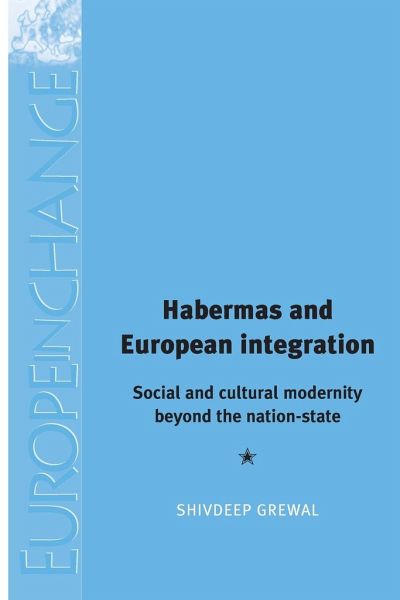
Habermas and European Integration
Social and Cultural Modernity Beyond the Nation State
Versandkostenfrei!
Versandfertig in 1-2 Wochen
28,99 €
inkl. MwSt.
Weitere Ausgaben:

PAYBACK Punkte
14 °P sammeln!
From its conception to the referenda of 2005 where it met its end, German philosopher Jürgen Habermas wrote in support of the European Constitution. This is the first in-depth account of his project. Emphasis is placed on the conception of the European Union that informed his political prescriptions-this approach entails a deep engagement with his academic and political writings, and with influential treatments of the European integration process, such as the writings of E.B. Haas. The book is divided into three parts. The first considers the unfolding of 'social modernity' at the level of th...
From its conception to the referenda of 2005 where it met its end, German philosopher Jürgen Habermas wrote in support of the European Constitution. This is the first in-depth account of his project. Emphasis is placed on the conception of the European Union that informed his political prescriptions-this approach entails a deep engagement with his academic and political writings, and with influential treatments of the European integration process, such as the writings of E.B. Haas. The book is divided into three parts. The first considers the unfolding of 'social modernity' at the level of the EU; among the subjects covered are Habermas's concept of juridification, the latter's affinities with integration theories such as neofunctionalism and the application of Habermas's democratic theory to the EU. The second part addresses 'cultural modernity' in Europe - 'Europessimism' is argued to be a subset of the broader cultural pessimism that has assailed the project of modernity in recent decades with renewed intensity in the wake of 9/11. The final section looks at the conceptual landscape of the Constitutional Convention, demonstrating how the ideas of social and cultural modernity may be employed in the service of empirical research. Interdisciplinary in approach, this book engages with European/EU studies, political theory, globalisation studies, and the history of ideas. Concise and clearly written, it will be of interest to advanced undergraduates and postgraduates, scholars and professionals with an interest in these subjects.



